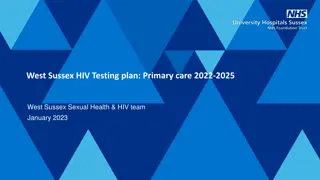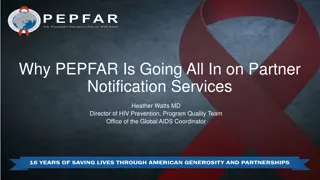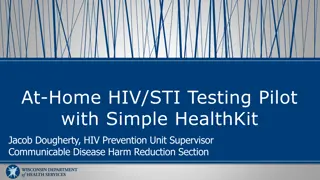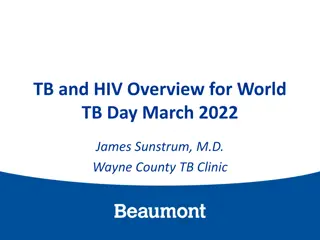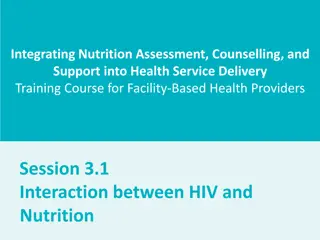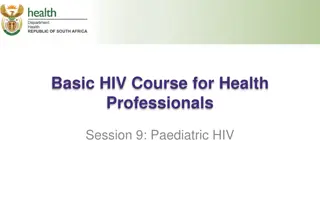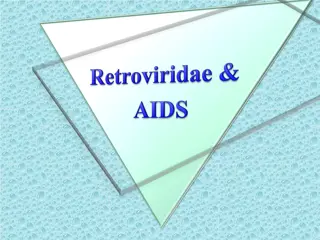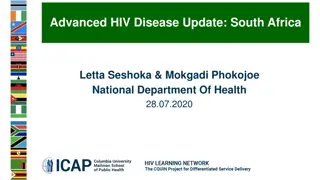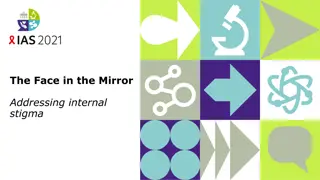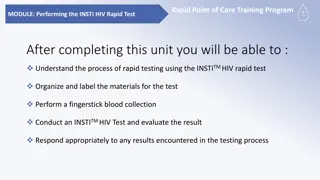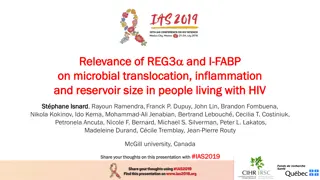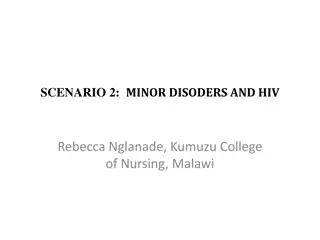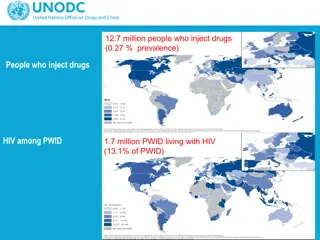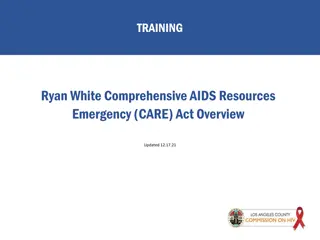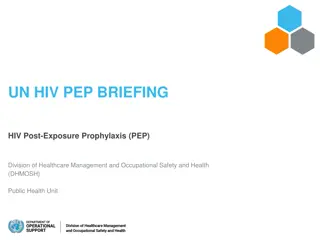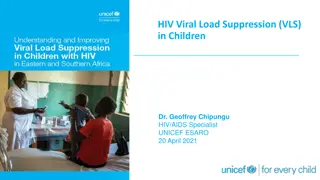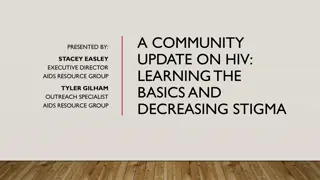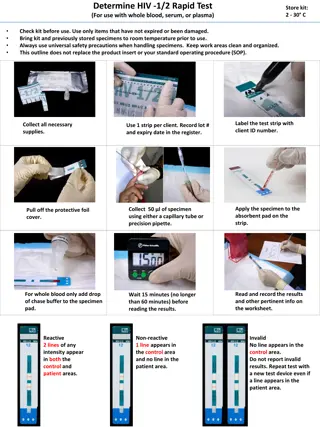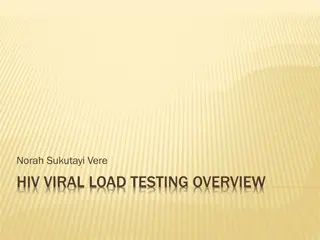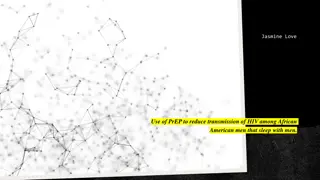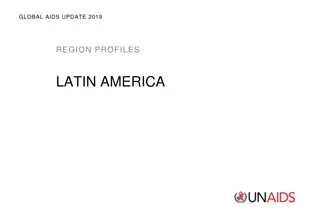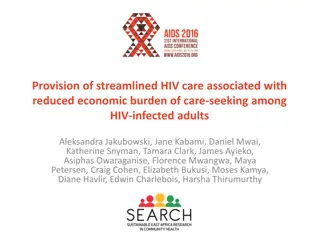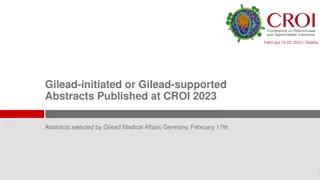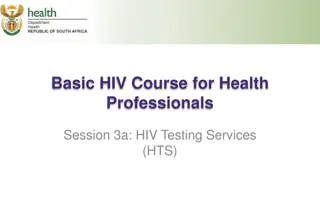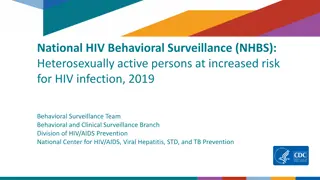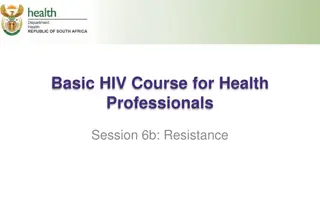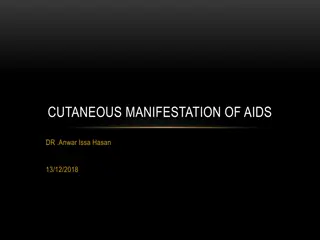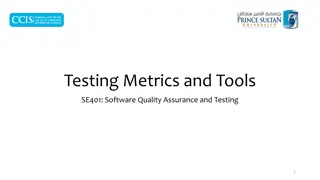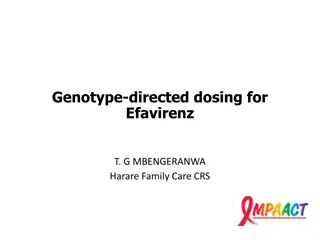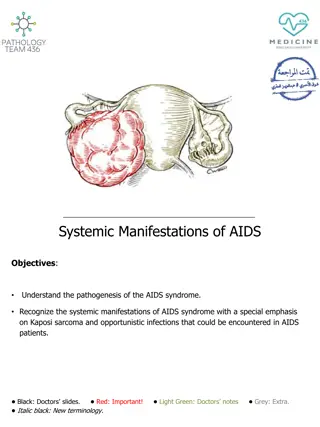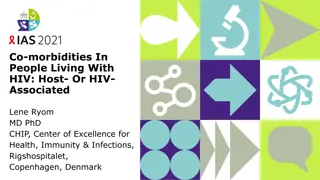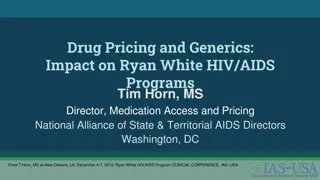HIV Self-Testing Initiatives in France and Africa: Key Findings and Impacts
The presentation discusses the implementation and impact of HIV self-testing initiatives in France and Africa, focusing on key findings from the STAR Project in Malawi, Zambia, and Zimbabwe. It explores how self-testing can reduce undiagnosed infections, emphasizing the importance of retesting key populations. The session also covers the legalization of HIV self-testing in France, the availability of rapid tests in pharmacies, and initiatives for free or low-cost self-tests. Additionally, it addresses the generalized epidemic in Southern Africa, emphasizing the need for increased testing rates, especially among men and high-risk populations.
Download Presentation

Please find below an Image/Link to download the presentation.
The content on the website is provided AS IS for your information and personal use only. It may not be sold, licensed, or shared on other websites without obtaining consent from the author. Download presentation by click this link. If you encounter any issues during the download, it is possible that the publisher has removed the file from their server.
E N D
Presentation Transcript
Satellite Session HIV Self-Testing: Evidence for Action: Key Findings from the HIV Self- Testing Africa (STAR) Project in Malawi, Zambia and Zimbabwe Prof. Anne-Claude Cr mieux H pital Saint-Louis Universit Paris 7
France: concentrated HIV epidemic Key populations MSMs Individuals from sub-Saharan Africa Metropolitan Paris region: 42% of France s new HIV diagnoses Undiagnosed HIV infections 16% of people living with HIV unaware of their infections Almost exclusively in high-risk populations Tested 3 to 5 years before but never retested ++ Encourage key populations to be retested (Cr mieux, D Almeida, Lert, Semaille et al, Archives of Internal Med 2012, Plos One 2013, AIDS 2012)
Is self-testing able to reduce the number of undiagnosed infections by encouraging key populations to repeat tests? 2013: French Ministry of Health legalized HIV self- testing September 2015: whole-blood rapid self- HIV test was available in pharmacies 140,000 tests have been sold in French pharmacies 2017 joint initiative of the President of Metropolitan Paris R gion, Val rie Pecresse, and the Mayor of Paris, Anne Hidalgo, for free or low-cost HIV self-tests. French Center for Disease Control ( Sant Publique France ): REMIND study (ongoing)
HIV Self-Testing in Africa, the STAR Project In Southern Africa, the epidemic is generalized and HIV still affects up to 20% of the adult population. 40% of people living with HIV are not aware of their infections. HIV-screening rate is still insufficient for men. The epidemic also disproportionally affects adolescent girls and young women, sex- workers, and MSM.
Satellite Session Results on the public health impact and cost- effectiveness of HIV Self-Testing. (London School of Hygiene and Tropical Medicine, University College London, Liverpool School of Tropical Medicine, and Population Services International, Wellcome Trust, ZAMBART, CESSHAR Zimbabwe) Discussion with panelists on the remaining research questions that will be addressed during the next phase of the STAR Project, extension to South Africa, Lesotho and Swaziland Official launch of the next STAR phase with UNITAID, PSI, Society for Family Health and the South African Ministry of Health s Malawi, Liverpool



